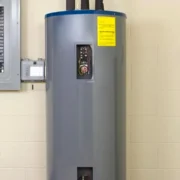Household appliances are the unsung heroes of our daily lives. From washing machines to refrigerators and ovens, these devices simplify our routines and make our lives more comfortable.
However, when one of these trusty appliances breaks down, it can be a costly and frustrating experience. The good news is that many appliance problems can be fixed with some know-how and basic tools. In this article, we will explore appliance repair hacks that can save you money and extend the life of your appliances.
The Benefits of Appliance Repair
Before we dive into the repair hacks, it’s essential to understand why repairing your appliances is a wise choice. First and foremost, repairing appliances is more environmentally friendly than replacing them. The manufacturing and disposal of appliances have a significant environmental impact. By repairing rather than replacing, you reduce your carbon footprint.
Moreover, repairing appliances is often more cost-effective than buying new ones. Appliance repair costs are generally lower than the price of a brand-new appliance, and by extending the life of your current appliance, you save money in the long run.
Basic Tools You Need
Before you start any appliance repair project, it’s essential to have the right tools on hand. Here are some basic tools that can help you tackle common appliance repair tasks:
- Screwdrivers: Phillips and flathead screwdrivers are essential for opening and closing appliance panels.
- Wrenches: Adjustable wrenches are handy for various tasks, including tightening or loosening bolts and nuts.
- Multimeter: This tool helps you check for electrical issues and diagnose problems with motors and heating elements.
- Pliers: Needle-nose pliers help reach tight spots and grip small objects.
- Socket set: A set of sockets and a ratchet handle can be indispensable for removing and replacing nuts and bolts.
- Safety gear: Safety goggles and gloves while working with appliances.
Remember, safety should always be a priority when working on appliances. Unplug the appliance or turn off the power source before attempting any repairs, and if you’re unsure, consult a professional appliance repair company.
Troubleshooting Common Appliance Issues
Before you begin any repair, accurately diagnosing the problem is essential. Here are some common appliance problems and tips for troubleshooting them:
A. Washing Machine
- Leaking Washer: Check for loose or damaged hoses and worn-out door gaskets. Replace or tighten them as needed.
- Drum Imbalance: Level the washing machine by adjusting its legs or placing a piece of wood under a wobbly corner.
B. Refrigerator
- Not Cooling Properly: Clean the condenser coils, check the thermostat settings, and ensure proper ventilation around the refrigerator.
- Unusual Noises: Inspect the evaporator or condenser fan motor for obstructions or damage. Replace if necessary.
C. Oven
- Temperature Discrepancies: Calibrate the oven temperature or replace a faulty temperature sensor.
- Malfunctioning Igniters: Replace a faulty oven igniter to solve ignition problems.
D. Dishwasher
- Drainage Problems: Clear clogs in the drain hose or filter. Check the impeller for obstructions.
- Detergent Dispensing Issues: Ensure the detergent dispenser is clean and unblocked.
E. Dryer
- Not Heating Up: Inspect and replace the heating element or thermostat if they are faulty.
- Lint Buildup: Regularly clean the lint filter and vent to improve dryer efficiency.
DIY vs. Professional Repairs
While many appliance repairs can be done yourself, there are limits to what a DIY enthusiast can accomplish. For example, complex electrical or gas-related issues should be left to professional technicians to avoid safety hazards. If you need more clarification about a repair involving complex components, it’s best to call in an expert.
Maintenance Tips for Prolonged Appliance Life
Preventive maintenance can significantly extend the life of your appliances. Here’s a checklist for routine upkeep:
- Clean or replace filters regularly (e.g., in dishwashers, dryers, and vacuum cleaners).
- Keep appliance interiors clean and free from debris.
- Check and tighten electrical connections.
- Lubricate moving parts as needed.
- Inspect and clean condenser coils (for refrigerators).
- Clear vents and exhaust ducts (for dryers).
Cost Comparison: Repair vs. Replacement
Let’s put the cost savings into perspective. Imagine your washing machine isn’t working correctly. You could spend a few hundred dollars on a new one or invest a fraction of that cost in parts and a bit of your time to repair it. The latter saves you money, reduces waste, and contributes to a more sustainable future.
Sustainability and the Environment
Speaking of sustainability, it’s crucial to recognize the environmental impact of our consumption habits. When you repair appliances instead of replacing them, you help reduce the number of appliances ending up in landfills. This, in turn, conserves valuable resources and reduces the energy required to manufacture new appliances.
Conclusion
Appliance repair hacks are a valuable skill that can save money and contribute to a greener planet. By learning to troubleshoot and fix common appliance issues, you keep your appliances running smoothly, reduce your carbon footprint, and decrease your expenses. So, don’t rush to the store the next time your washing machine acts up, or your refrigerator makes strange noises. Grab your tools, follow these repair hacks, and extend the life of your appliances while keeping your wallet happy.












Comments